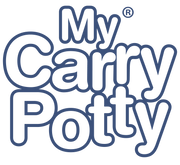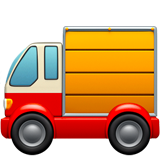Toddlers are at a stage where they are learning about themselves and the world around them, and language plays a crucial role in how they interpret and respond to new experiences.
Potty training is a major milestone, and the language you use, along with the environment you create, can have a big impact on your child’s progress. Toddlers are at a stage where they are learning about themselves and the world around them, and language plays a crucial role in how they interpret and respond to new experiences.
Whether you’re celebrating a potty success or handling an accident, the way you phrase things can help your toddler feel more confident and secure in the potty training process. At the same time, maintaining consistency in their potty training space—with tools like the My Carry Potty, trainer seat, step stool, and training pants—can create a supportive, distraction-free environment. Here are some helpful phrases to use and a few to avoid.
What to Say When Potty Training: Keep It Positive and Simple
Your toddler thrives on encouragement, and potty training is no exception. The language you use should reinforce positive behaviours while keeping things simple and easy for them to understand. Here are some examples of positive potty training phrases:
-
"You did it! You went wee/poo in the potty!"
Celebrate their achievement by being specific about what they did, so they can connect their actions with your praise. -
"You listened to your body—great job!"
Help toddlers understand that potty training is about recognising the signals from their body, building self-awareness. -
"I’m so proud of you for sitting on the potty!"
Even if they don’t use the potty right away, acknowledging the effort they’re making encourages them to keep trying. Praising the act of sitting on the potty can reduce frustration. -
"You’re learning how to use the potty, and that’s amazing!"
Words like these emphasise that potty training is a process, and every attempt—successful or not—is part of their progress.
Consistency is Key: Setting Up the Perfect Potty Training Environment
Creating a consistent and distraction-free potty training environment is just as important as the language you use. By keeping things simple and removing distractions like loud noises, unpleasant smells, or overwhelming sights, you help your child focus and feel more comfortable during potty training. Here’s how to integrate the right tools to create a calm, supportive potty training environment.
1. My Carry Potty
- Why It Works: My Carry Potty provides consistency wherever you go. Whether you’re at home, visiting friends, or on a family outing, having the same potty available helps your toddler feel secure and reduces anxiety. The fun designs appeal to toddlers, giving them a sense of pride and ownership.
- How to Use It: Keep the Carry Potty in your child’s regular potty training spot at home, and bring it with you when you're on the go. This consistency reinforces their routine and helps build confidence in different settings.
2. Trainer Seat and Step Stool
- Why It Works: Once your child becomes comfortable, transitioning to a trainer seat on the big toilet can help them feel more grown up. Adding a step stool ensures they can get on and off the toilet by themselves, fostering independence.
- How to Use It: Keep the trainer seat and step stool in the same bathroom spot to build familiarity. Use encouraging language when they use it independently: "Wow, you climbed up all by yourself—great job!"
3. Training Pants
- Why They Work: Training pants offer a bridge between nappies and big-kid underwear, helping your child feel more independent while still protecting against small accidents. Soft and comfortable reusable pants, like My Little Training Pants, are ideal for this phase.
- How to Use Them: Boost your child’s confidence by pointing out how grown up they look in their training pants: "Look at you, wearing your big-kid pants! Let’s keep practising getting to the potty in time."
4. Potty Training Magic
- Why It Works: For extra guidance, Potty Training Magic by our founder and in-house expert, Amanda Jenner, offers expert tips and advice to help parents stay consistent and calm throughout the process. With practical solutions to common potty training challenges, it will be your go-to resource for maintaining a positive environment.
- How to Use It: Use Potty Training Magic as your guide for handling accidents, creating a routine, and dealing with regression. Its strategies align with positive reinforcement and a calm, supportive approach to potty training.
What Not to Say During Potty Training: Avoiding Pressure and Guilt
While encouragement is key, certain phrases can unintentionally create pressure or guilt for your toddler. Avoid the following:
-
"Big boys/girls don’t wear nappies."
While it may seem motivating, linking potty training to their identity as a “big boy/girl” can feel like pressure. If they have an accident, it might make them feel as though they’ve failed. -
"Why did you do that?"
This can make toddlers feel guilty or confused, especially after an accident. Remember, they’re still learning, and mistakes are part of the process. -
"You made mummy/daddy sad."
Associating potty training with your emotions, especially disappointment, can create guilt or anxiety. Keep the focus on learning, not on how their actions affect you. -
"You’re not trying hard enough."
Potty training is a skill that takes time. Telling your child they aren’t trying hard enough can discourage them, particularly if they’re already feeling unsure or frustrated.
Handling Accidents: Stay Calm and Neutral
Accidents are inevitable during potty training, and your response can either reassure your child or cause unnecessary stress. Here’s how to handle accidents calmly:
-
"That’s okay, accidents happen. Next time, let’s try to get your wee/poo in the potty!"
Reassure your child that accidents are normal, while gently reinforcing the goal. -
"Oops, it looks like you didn’t make it to the potty. Let’s clean it up together!"
Taking a calm and practical approach removes any sense of shame or frustration. Working together helps them feel responsible in a positive way. -
"Remember, your wee/poo belongs in the potty. We’ll keep practising!"
Reinforce the idea of where their waste should go, guiding them without making them feel bad.
What to Do When Your Toddler Feels Upset or Frustrated
Potty training can be overwhelming for some toddlers, especially after an accident. Offering reassurance helps keep them motivated and confident:
-
"It’s okay, accidents are part of learning. We’ll try again next time."
Remind your child that everyone makes mistakes, which will help them feel supported. -
"I know it’s hard, but you’re doing a great job. Keep trying!"
Acknowledge their effort and persistence, even if they haven’t quite succeeded yet. -
"Let’s take a break and try again later."
If they’re feeling overwhelmed, allow them a breather. Taking breaks can prevent frustration for both you and your toddler.
Using Body Language to Reinforce Your Words
Along with your words, your toddler is highly attuned to non-verbal cues like facial expressions and tone of voice. Positive body language helps reinforce encouragement:
- Happy face, happy tone: When they succeed, show joy and excitement. Toddlers love knowing that their efforts make you happy.
- Neutral face, calm tone: During accidents, keep a neutral expression and a calm tone. This signals that accidents are no big deal and are just part of the learning process.
Final Thoughts: Building a Positive Potty Training Experience
The words you use and the environment you create have the power to shape your toddler’s potty training journey.
By encouraging with positive, simple language and setting up a consistent, calm potty training space with our exceptional range of potty training bundles, you’ll help your toddler feel confident and supported.
Remember, potty training is a learning process, and every child moves at their own pace. Celebrate small successes, handle accidents with patience, and always keep the focus on progress over perfection.
For more expert tips, guidance, and solutions, be sure to pick up a copy of Potty Training Magic by Amanda Jenner, available now on our website!





